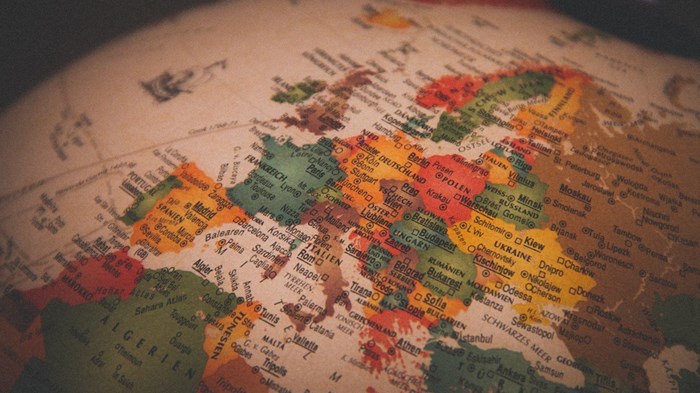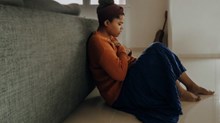Moving From Indifference to Love

I read about it in the news. The places where chaos, calamity, devastation, war, and persecution have erupted. One day, a child is living; the next day, she might die. And this happens every day, all over the world.
It could be because of an earthquake, it could be due to malnutrition, it could be due to war, or it could be because of one’s beliefs.
Lives that were once full of hope remain uncertain with challenges and the toils of daily living.
I’ve been fortunate, as an immigrant to the U.S., to live in a country where I do not live with the daily threat of starvation or war. Our family’s situation allowed us to immigrate. Not everyone is that fortunate. Thirty-six and a half million of the world’s displaced people are children under the age of 18.
I encounter statistics like these on a regular basis, and they soon become simply numbers floating in the news, amid so much other bad news.
I read of tyrannical regimes, where fear runs rampant. I become numb and move on to the next headline, reading of the next disaster, and the next, feeling helpless and lost.
And that is perhaps the scariest thing of all: that I recognize this numbness and coldness in my own heart.
Compassion fatigue. Indifference. Hatred. It starts with me. It starts with one heart. One person, one neighbor, one word, one grudge, one remark, one spark of bitterness. One action multiplies, indifference soaks in, and hatred spreads.
My own heart is capable of that. I am not exempt. None of us are.
Russian novelist, Alexander Solzhenitsyn, after having spent twelve years in a Russian gulag, wrote: “Bless you prison, bless you for being in my life. For there, lying on the rotting prison floor, I came to realize that the object of life is not prosperity as we have been told, but rather the maturing of the human soul.”
Spending twelve years in a Russian labor camp will produce something in a person. It will either be character, or bitterness, but there will be a result.
I can’t imagine spending twelve years like that. Where does a person’s hope come from? How does a person keep from falling into despair over the daily drudgery, injustice, and cruelty? How and where?
Our prisons, our hardships, our trials, and our storms can expose something that fair weather obscures from our view. They show us a piece of truth that we need to know. They reveal to us why we are here and what is important. What we each might take away during our trials is different.
For Solzhenitsyn, losing years of his life rotting on the prison floor was not about gaining more prosperity; rather, it had to do with something more, something permanent and solid: “the maturing of the human soul.”
The maturing of the human soul.
What a gift we have if we can get to that place without a prison to take us there.
In my experience, it’s often the dirty floor of grief, pain, or tragedy—where our tears have washed the ground—that teaches in a profound way what is really important.
It brings us back to the face of God, where everything makes more sense. It doesn’t all make sense, because the answer to suffering is a question each human heart must wrestle with.
I, or we, will never understand it all. I certainly don’t. But when everything else is taken away, we can clearly see what is important, real, and true.
Each one of us has a decision to make, even if we’re not rotting in a prison or living in a war-torn country. We’re still living with daily decisions of making sense of suffering and answering this question of tragedy around us.
What will we do with indifference? It starts with me. It starts with us.
Change like this can’t be fulfilled by any political ideology, government, social agenda, or cultural shift.
Change like this starts in the heart.
This kind of change starts with the emptying of ourselves, like Jesus, “who being in the very nature God... made himself nothing by taking the very nature of a servant…” (Phil. 2: 6-7 NIV). He becomes our model for loving service for others and a life that starts in descent, in emptying ourselves so that Jesus can fill us with Himself.
It’s how we pick ourselves up from the sorrows in our lives and all around us. It’s what we need, and must, do.
We can’t solve everything, but practically speaking, we can pick a couple of causes, one local and one global, to support.
Full of myself? Full of the world? Look at the news and we can see where that gets us.
Empty of self and full of Jesus? That’s what I want. That’s what we need.
Prasanta Verma is a writer and speaker. She was born under an Asian sun, raised in the Appalachian foothills, and resides in the upper Midwest. She writes on the topics of diversity and culture, with published works in numerous print and online publications, and has a book about ethnic loneliness forthcoming in 2024 with InterVarsity Press.
The Better Samaritan is a part of CT's
Blog Forum. Support the work of CT.
Subscribe and get one year free.
The views of the blogger do not necessarily reflect those of Christianity Today.





















